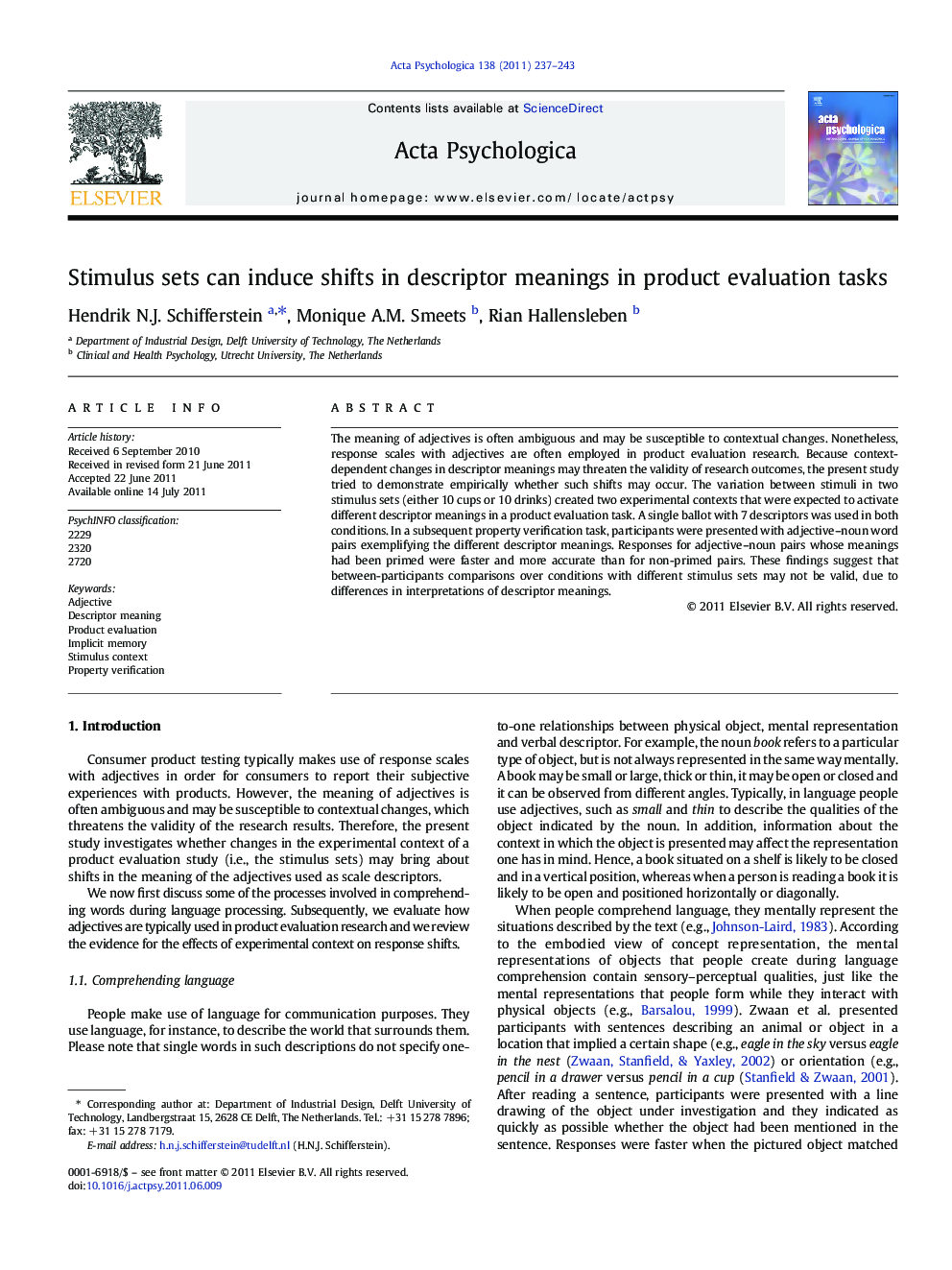| Article ID | Journal | Published Year | Pages | File Type |
|---|---|---|---|---|
| 920193 | Acta Psychologica | 2011 | 7 Pages |
The meaning of adjectives is often ambiguous and may be susceptible to contextual changes. Nonetheless, response scales with adjectives are often employed in product evaluation research. Because context-dependent changes in descriptor meanings may threaten the validity of research outcomes, the present study tried to demonstrate empirically whether such shifts may occur. The variation between stimuli in two stimulus sets (either 10 cups or 10 drinks) created two experimental contexts that were expected to activate different descriptor meanings in a product evaluation task. A single ballot with 7 descriptors was used in both conditions. In a subsequent property verification task, participants were presented with adjective–noun word pairs exemplifying the different descriptor meanings. Responses for adjective–noun pairs whose meanings had been primed were faster and more accurate than for non-primed pairs. These findings suggest that between-participants comparisons over conditions with different stimulus sets may not be valid, due to differences in interpretations of descriptor meanings.
▶ Meaning of adjectives for product scaling may depend on experimental context. ▶ Two stimulus sets (cups or drinks) created to activate different descriptor meanings. ▶ One ballot with 7 descriptors to evaluate all stimuli. ▶ Responses for primed adjective-noun pairs were faster and more accurate. ▶ Between-participants comparisons over conditions with different stimuli may be invalid.
